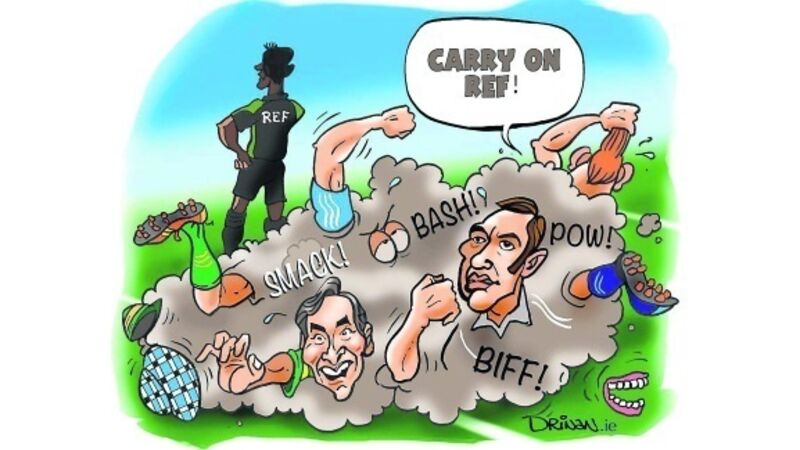Gaelic football now a riot of rancour

Alas, the survivors got home to find the reality TV show, Eden, that they’d been participating in hadn’t been screened for seven months due to lack of interest.
It was a little like the indignity referee Sean Hurson visited on the footballers of Kerry and Dublin last Saturday night in Tralee.









